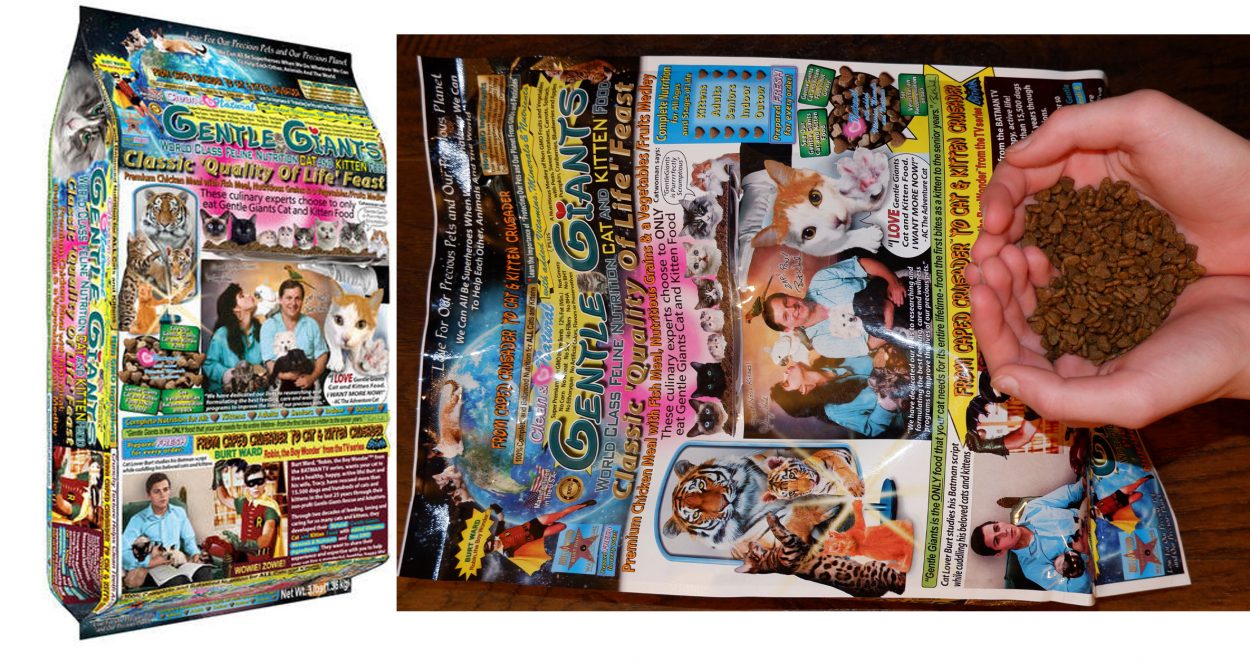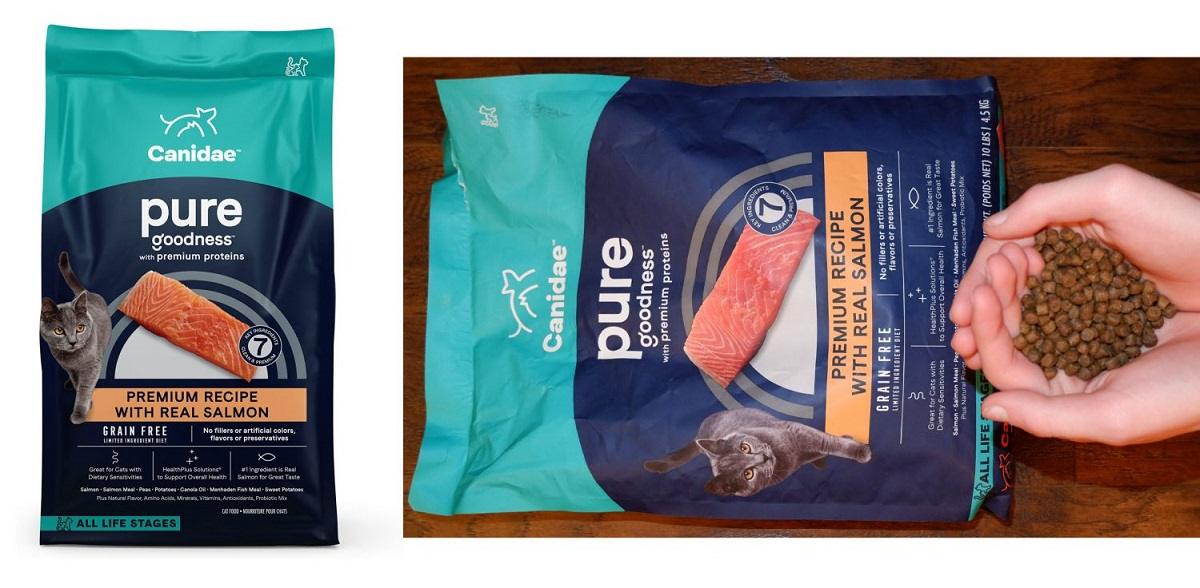6 Best Cat Foods For Smelly Poop
This page contains affiliate links. We may earn money or products from the companies mentioned in this post through our independently chosen links, which earn us a commission. Learn More
What your cat eats may also be the cause of his smelly poop problem. Most commercial cat foods contain a high amount of grains like corn, wheat and barley.
Cats cannot digest grains well and although cat food manufacturers process the grain so that it is easier to digest, it can still cause digestive problems. Undigested grain produces bacteria in the digestive tract, hence the cat foul-smelling stools.
The Best Cat Foods For Smelly Poop Comparison Chart
| IMAGE | PRODUCT | |
|---|---|---|
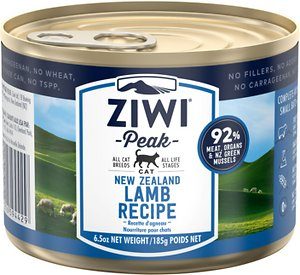 | Best Wet Food
| VIEW LATEST PRICE → |
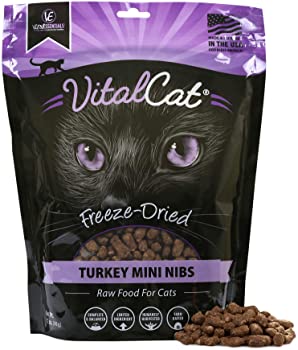 | Best Freeze Dried
| VIEW LATEST PRICE → |
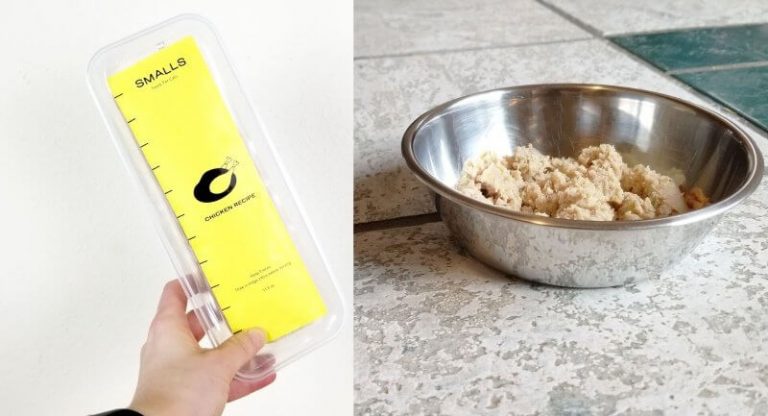 | Best Fresh Cat Food
| Get 25% Off → |
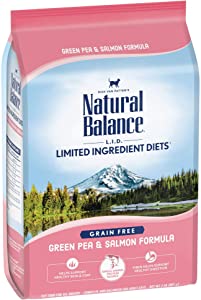 | Best Dry Food
| VIEW LATEST PRICE → |
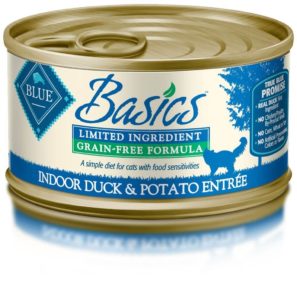 |
| VIEW LATEST PRICE → |
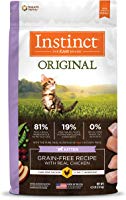 | Best for kittens
| VIEW LATEST PRICE → |
To learn more about the causes and treatments for smelly stools in cats as well as our picks for the best food for smelly poop, read on.
The Best Cat Foods For Smelly Poop Reviewed
#1 Ziwi Peak Canned Cat Cuisine
Product Info:
- Price: ~$0.7/ OZ
- Food Type: Wet
- Made In: New Zealand
- Protein: 9% Min
- Fat: 4.5% Min
The Good
- Grain free
- High amounts of amino acids
- All natural
The Bad
- Thick consistency
- High priced
Ziwi Peak originated in New Zealand and is made from grass-fed, free-range 100% lamb sourced from ethical and sustainable New Zealand farms. The wild-caught New Zealand Blue Mackerel is high in Omega 3 and 6 fatty acids.
This cuisine includes 3% New Zealand green mussels, which are a natural source of Chondroitin and Glucosamine that supports joint health.
The food is a chunky loaf style, with a high level of all-natural protein and moisture to entice even the most finicky cat.
This cuisine does not have grains, rice, corn, soy, potatoes, wheat, fillers, sugars, glycerin’s, rendered meals, preservatives, TSPP, BPA, Guar Gum, Agar or Carrageenan.
#2 Vital Essentials Turkey Mini Nibs Freeze-Dried Cat Food
Product Info:
- Price: ~$1.8/ Oz
- Food Type: Freeze Dried
- Made in: USA
- Protein: 49% Min
- Fat: 17% Min
The Good
- Made with limited ingredients
- No by-product meals
- Helps narrow down allergies
The Bad
- Some cats refuse to eat
Vital Essentials Turkey Mini Nibs Entree Freeze-Dried Cat Food is a protein-rich, grain-free food that contains premium-quality formulas with real meat.
This limited ingredient food is made up of a unique recipe consisting of the finest natural ingredients enhanced with a precise blend of vitamins, minerals and antioxidant-rich raw goat’s milk.
Freeze dried cat food is a good place to start when narrowing down your cat’s Smelly poop.
#3 Smalls Food for Cats
Product Info:
- Price Range: ~$2.00 – $3.50/ per meal
- Food Type: Fresh
- Made In: USA
- Protein: 21.2% Min
- Fat: 8.05% Min
The Good
- 100% money back if your cat does not like the food
- Customized meal plan based on budget, cat’s age, health status, and current diet
- No fillers, grains or artificial flavors
The Bad
- Price on the high side
- Food needs to be refrigerated
Smalls is a subscription cat food delivery service that delivers customized meals to your door. They guarantee to provide restaurant quality ingredients that are considered human grade, in every meal.
The food contains no fillers or grains, no preservatives or artificial flavors, and they only use the highest-quality, responsibly sourced meats.
Smalls recipes are prepared in a human-grade kitchen that is 100% designed and dedicated to making fresh pet food.
Smalls currently offers 3 fresh recipe flavors in pate or minced, and can mix and match the foods depending on your cats preference. Their food is free from preservatives, fillers, grains, and artificial flavors.
#4 Natural Balance LID Salmon Dry Cat Food
Product Info:
- Price: ~$3.1/ Ib
- Food Type: Dry [Limited Ingredient Diet]
- Protein: 37% Min
- Fat: 15% Min
The Good
- Limited number of ingredients
- Made with high quality protein
- Safety tests done on every batch
The Bad
- Some cats won’t eat it
- Price on the high side
Natural Balance LID Salmon Dry Cat Food is designed with a limited number of premium protein and carbohydrate sources. LID Limited Ingredient Diets Green Pea & Salmon Dry Cat Food is an excellent choice when seeking alternative ingredients for your cat.
It is formulated with complex carbohydrates and protein, green peas and is a great choice when seeking alternatives to grains. Limited ingredient foods are great for cats with allergies, as they reduce the chance for your cat to be exposed to allergens.
This ultra premium grain-free cat food is designed to support healthy digestion and to maintain skin and coat health as well as providing complete, balanced nutrition for adult cats.
#5 BLUE Basics Limited Ingredient Diet Grain Free Wet Cat Food
Product Info:
- Price: ~$0.4/ Oz
- Food Type: Wet [Grain-Free]
- Made In: USA
- Protein: 7.5% Min
- Fat: 6% Min
The Good
- No by products
- High quality protein
- Made with duck
The Bad
- Very pricey
- Some cats refuse to eat
This natural holistic cat food provides essential amino acids and vital nutrients cats need every day. Made with wholesome whole grains, hearty whole grains like brown rice, Barley and Oats to keep your cat supplied with the complex carbohydrates needed for energy.
Also includes healthy garden veggies and fruit like whole carrots, sweet potatoes, parsley and cranberries. Naturally healthy and highly digestible, Spa select is a delicious way to provide your adult cat with the complete and balanced nutrition he needs every day.
BLUE Basics contains duck which is a delicious, high-quality protein not typically used in cat food as well as potatoes and peas which are easily digestible carbohydrate sources. Also you will find an optimal blend of omega 3 and 6 fatty acids to support skin and coat health for cats with food sensitivities and smelly poop.
#6 Instinct Original Kitten Grain Free Recipe Natural Cat Food
Product Info:
- Price: ~$4.5/ Ib
- Food Type: Dry
- Made In: USA
- Protein: 42.5% Min
- Fat: 22.5% Min
The Good
- Calorie dense recipe
- Added probiotics
- Real chicken is #1 ingredient
The Bad
- Price is above market average
Instinct by Nature’s Variety Original Kitten Grain-Free Recipe with Real Chicken Dry Cat Food lists real chicken as the first ingredient. This means you’re providing your kitten with the high-quality protein that helps her grow.
This recipe is made with DHA, a nutrient found in mother’s milk, which assists with brain and vision development.
This dry cat food is an ideal formula made for your kittens specific tastes and to help support a healthy immune system. Instinct by Nature’s Variety recipes contain 0% fillers, meaning all food contains high-quality ingredients.
Causes Of Smelly Poop In Cats
Always read the label for the contents of your cat’s food . If it is high in grains then changing to a food with a higher protein content may solve the gas problem. Dry cat food is known to be higher in grain content. Some cat breeds such as the Rex, Sphynx and Ragdoll, are more prone to particular digestive problems.
Smelly Poop in cats is sometimes caused by food changes or maybe a food allergy. Make sure that you introduce new cat food slowly, especially when switching kittens to adult cat food.
Cat food should not be left out too long. Cats will most likely not eat spoiled food, but if hungry enough will give it a go. Eating spoiled food could cause your cat to be gassy and worse.
If you have ruled out the previous mentioned causes, your cat maybe suffering from one of the following and needs to see a veterinarian:
- Irritable bowel syndrome – Commonly associated with chronic inflammation and discomfort of a cat’s bowels, but is typically not directly linked to gastrointestinal disease. Causes may include food intolerance and the ability of the cat food to effectively pass through the gastrointestinal tract. Mental distress can also be a contributing factor for this condition.
- Intestinal virus – Also known as the rotavirus, it causes inflammation of the intestines and in severe cases, dysfunction in the intestinal walls. This virus is the leading cause of diarrhea and gastrointestinal upset in cats.
- Intestinal cancer – Intestinal cancer is a term used to describe abnormal cell growth or tumors occurring in the gastrointestinal system. This growth can be benign or malignant. Malignant growths are considered cancerous and can cause severe issues, potentially spreading to other systems or vital organs.
- Gastrointestinal parasites – Gastrointestinal (GI) parasites are common in cats, with prevalence rates as high as 45% depending upon the population studied. The parasites can be worm like and cause dull coat, coughing, gas, vomiting, diarrhea or bloody feces, and loss of appetite.
- Pancreatitis – An inflammation or infection of the pancreas. Origins are frequently unknown. Potential causes are decreased blood flow (due to dehydration, or other disease processes) infections, disease or trauma.
- Intestinal obstruction –Intestinal obstruction is common, especially in young cats. They swallow foreign objects that can cause obstruction in the intestines. Most objects pass through the intestines and are expelled without much discomfort but some may get stuck. Such obstruction can be life-threatening at times.
- Dietary sensitivity – Food allergies and/or intolerance are caused by a reaction to a particular ingredient, which is usually a protein. There are two types of reactions: those in which the immune system is involved causing allergic reactions and those that occur without an immune component meaning an intolerance.
Common Allergens
While the overall percentage of cats that have food allergies is low, there are some ingredients that are more common than others where foods are concerned. The most commonly reported food allergies are chicken, beef, fish, dairy, and egg. The most common of those is beef, while dairy and fish are in second and third place.
There is nothing unique about these ingredients other than cats are exposed to them a lot in their foods, no matter the quality of that food. Even more surprising is that grains are not a common cause of food allergies and most cats are allergic to animal proteins which may cause digestive issues along the way.
There are rare cases in which a cat is allergic to a specific grain, or plant-source such as potato, or carrot, but this is less common than animal protein. Gluten allergies are rare in cats, but many food manufacturers advertise gluten free formulas being good for cats with allergies.

